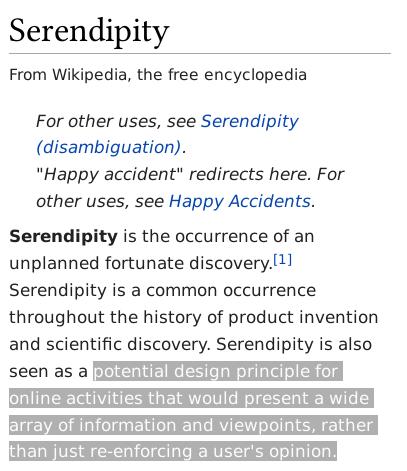

Wikipedia reference: Serendipity
THE old nonsense about "conspiracy theory" (nowadays a term already cheapened to the point where it means anything that contradicts some official narrative, i.e. narrated by those in power) led to overt or subtle -- explicit and/or implicit -- censorship of particular viewpoints. It has gotten so bad that António Campinos and Benoît Battistelli blocked their staff from accessing Techrights. We actually provide only factual information about the European Patent Office (EPO), based on EPO insiders for the most part. Rarely did we get caught publishing anything short of perfectly accurate. Even rumours that we mention almost always turn out to be true (later on).
"Today we finished coding and preparing the first large dataset about news (a 12-year archive spanning gigabytes of text), which we'll analyse for a number of upcoming articles that are analytical in nature."The other day when I was browsing YouTube for a long time I was somewhat mortified to see what it had become. Not just a mill of classic "conspiracy theory" but also promoter and booster of corporate lies, almost as though some parties paid Google to bump up their "content" (in the results). So basically one is presented with two kinds of lies. This is really, really bad. The balance between lies? Well, that's pretty much what YouTube became. This is what happens when every idiot with a webcam can set up a channel and people upvote things based on emotion... while contrariwise Google also favours videos that "pay well" (i.e. puff pieces/fluff and ads). I promised myself never to browse YouTube ever again for actual information. It's the wrong place to find any...
When it comes to patents, the mainstream media or patent 'news' sites have long fascinated me. Look who owns those sites and who narrates/authors them. They shape the perceptions and they set the tone for so-called 'Corporate Media' to parrot mindlessly, preparing the scene for litigation and shake-down rather than scientific advancement. There's hopefully better awareness of these issues in this day and age. That helps explain the general erosion of real journalism. Today we finished coding and preparing the first large dataset about news (a 12-year archive spanning gigabytes of text), which we'll analyse for a number of upcoming articles that are analytical in nature. The focus will be technology, not politics. An intern of ours started working yesterday. His focus will be programming news. ⬆